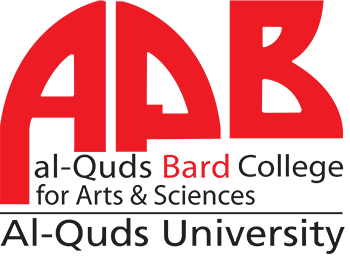The following is a list of Core Education courses
Issues in Teaching and Learning, Course # 9205515 (4 Credits)
This course explores the thinking of some of the major early 20th-century theorists in learning and investigates how this thinking has influenced the development of contemporary learning theories. Both the earlier and the later perspectives are examined regarding assumptions, approaches, conclusions, and implications for learning and instruction. Constructivist and social development theories are examined as the basis of a number of learning theories developed over the past 30 to 40 years. This analysis supports students in examining and questioning their own assumptions about education and learning; in better understanding the basis of culturally prevalent views; and in exploring the conversation between theory, research, and practice. This critical interaction becomes increasingly relevant as students anticipate their initial field experiences as teachers.
Cognition & Learning, Course # 9205529 (4 Credits)
This course is intended to cover topics in cognitive development, conceptual learning, and comprehension with special focus on areas, theory, and research that have potential application to education. Thus, the course will provide selective coverage of theoretical and empirical work in cognition that provides potential to inform and improve educational practice. The applicability of these themes to education will be explicitly developed and evaluated through the primary research literature. Based on the relevant literature, principles of learning will be established and applied to classroom practice. The principles of learning will be developed around three focal points: learning environment, instruction and individual learning.
Identity, Culture, and the Classroom, Course # 9205531 (4 Credits)
In this course, teachers consider what it means for them to teach - and for adolescents to learn - in the context of contemporary society. The course focuses on identity development and how it is influenced by cultural dynamics around such factors as race, gender, socio-economic factors, ability, ethnicity, and language. Students begin by exploring the concepts of identity and culture in broad terms. The purpose of the course is to move students toward a deeper understanding of the ways identity, culture, and schooling intersect so that they can develop a repertoire of reflective, analytical, and practical strategies to use in their ongoing work as teachers.
Curriculum and Instruction, Course # 9205530 (4 Credits)
This course emphasizes curriculum design and implementation by looking at how assessment protocols contribute to learning and answer essential questions about teaching practices. The course asks the question "What is it we teach in our subject area and how should we teach it?" Answering these questions prepares students for the work of instruction and planning as teachers in the public schools. Readings cover current educational research and curriculum theory; research focuses on the ways that the skills and contrarily, weaknesses of a particular discipline develop in the classroom setting.
Theory and Practice of Teaching I, Course # 9205516 (4 Credits)
“Theory and Practice of Teaching I” is the first part of two courses. These two courses are designed to be a discipline specific education ‘lab’ strand allowing the formation of learning communities among teachers of the same discipline and the focus on pedagogical content knowledge (PCK). Pedagogical Content Knowledge represents the blending of content and pedagogy into an understanding of how particular topics, problems or issues are organized, represented, and adapted to the diverse interests and abilities of learners, and presented for instruction. Elements of pedagogical content knowledge are: content and curriculum, knowledge of students and their learning, learning environments, assessment, planning and instruction, and professionalism. This course begins by focusing on teaching disciplines in schools and provides students with a platform to make connections between the content taught in the education and discipline courses through the exploration of essential questions including the following: How can a teacher of a given discipline in secondary schools guide his or her students to become discipline-literate and to acquire the skills necessary to think accordingly? How can learning theories inform instruction for authentic learning of the discipline? In what ways can learning theories be used to develop authentic assessments? How can learning theories also help in the development of effective classroom management? A certain amount of time is devoted to working with data gleaned from observations made in the schools. Students come to this lab to present lessons or student work that has emerged from lessons and readings which would provide the context for critique and reflection.
Theory and Practice of Teaching II, Course # 9205517(4 Credits)
In part two of Theory and Practice of Teaching students will continue on topics explored in the Fall term. Students in this course are expected to build on and extend the work begun in Theory and Practice of Teaching I (course# 9205516). Previous work in instructional planning and assessment is put into practice in this course, which provides a forum for linking educational literature with research in the field as students begin to explore problems/dilemmas in the classroom. Students in this course are expected to reflect on their work as teachers. Each student's evaluation plan addresses issues in learning, literacy, and individual learner needs within the context of teaching his or her discipline. This exploration will allow collection of data from the classroom and an in-depth analysis of this data. In addition, this course continues to be a site that supports reflective practice and communities of learning among peers.
Additional topics and Skills to be covered in course:
- Classroom Assessment - Performance Tasks +Rubric
- What is a representative portfolio? Purpose and elements
- Research elements
- Writing research questions
- Writing a literature review
- Data collection and analysis
- Designing action plans
Classroom Research Projects, Course # 9207597 (1 Credit)
Each student needs to develop and create two research projects that aim at demonstrating the knowledge and skills he/she has acquired during his/her graduate work.
Classroom Research Project, Course # 9207598 (3 Credits)
This independent study course requires students to become teacher-researchers, examining the effects of particular practices or designs on student learning in the context of their particular field of study. Review of the pertinent literature, research design and implementation, analysis of data, and conclusions leading to further iterations build a practice of inquiry and reflection that are essential to developing best practices in education. These projects are collaboratively constructed with support from partner mentor teachers from the public schools who help develop the leading questions that provide the impetus for the research. Together, the MAT student apprentice and the mentor teacher construct a research design for implementation during the Fall or Spring semester. Typically, research questions investigate real questions about student learning in the context of authentic practices in the academic discipline. MAT faculty act as advisers to these projects, providing support throughout the process, from the initial development of research questions and literature reviews in the summer semester until the final “publication” of the research document at the end of the Spring semester.
Research Seminar in the Discipline, Course # (920XXXX) (4 Credits)
Students in each field of study are required to complete a research seminar that engages them in inquiry and the development of knowledge in their discipline. This research represents an opportunity for students to pursue questions of personal interest while they engage in original work as independent scholars, under the guidance of a faculty adviser.

Mailing Address
Main Campus, Box 51000
Beit Hanina, Jerusalem, Palestine

